Download the Best Free VPN for PC, Android and Chrome
A Virtual Private Network (VPN) encrypts your internet traffic and masks your IP address, ensuring online privacy and security. VPNs let you browse safely on public Wi-Fi, hide your location, and bypass geographic restrictions. As more users seek anonymity and unrestricted content access, demand for free VPNs has skyrocketed. Free VPNs can be tempting since they cost nothing upfront, but they often come with trade-offs in speed, data limits, and privacy. This article reviews the 5 best free VPN services of 2025 – UrbanVPN, ProtonVPN, Windscribe, Hide.Me, and TunnelBear – covering their features, benefits, and limitations to help you choose the right one for your needs.
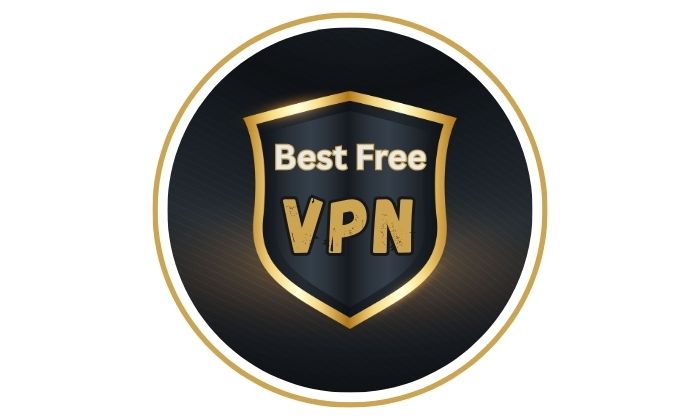
VPNs are essential for online privacy and security. By encrypting your connection, a VPN hides your data from ISPs and hackers and allows you to surf without geographic blocks. Free VPNs offer a no-cost way to try these benefits, but their security and performance can vary widely. This guide focuses only on these five free VPNs, comparing their key features, data limits, and trustworthiness in 2025.
What is a VPN and Why Do You Need One?
A Virtual Private Network (VPN) is a service that creates a secure, encrypted tunnel for your internet traffic. When you connect to a VPN server, your device’s IP address is hidden and replaced with the server’s IP, and all data is encrypted. This means your browsing activity can’t be easily monitored by ISPs, advertisers, or malicious actors. In effect, “a VPN protects your online privacy by hiding your real IP address and encrypts your internet traffic so you can browse privately, avoid being tracked across the internet, and stop your browsing data from being sold to advertisers”.
People use VPNs to secure data on public Wi-Fi, access region-restricted content, and shield their online habits from prying eyes. Privacy regulations and growing surveillance have made VPNs vital tools. Free VPN services let users enjoy basic privacy without paying, which is appealing for casual or budget-minded users. However, free VPNs often impose restrictions: they may limit bandwidth, place monthly data caps, display ads, or even track and sell usage data.
Warning: Free VPNs typically have limitations compared to premium plans. They may log or sell user data, throttle speeds, or restrict server access. For example, Fortinet’s security analysis warns that many free VPN tools “track users’ online activity” and share it with advertisers. Free providers often limit data usage (e.g. 500 MB–10 GB/month) and can slow down your connection with overcrowded servers. In short, free VPNs can provide basic privacy but are generally not as safe or reliable as paid services.
Despite these warnings, free VPNs remain popular for casual use. In the next sections, we’ll explain how we picked the top services and then dive into detailed reviews of each.
How We Selected the Best Free VPNs
To rank the best free VPNs, we evaluated each service using these key criteria:
-
Free Version Availability: The VPN must offer a truly free tier (no trial needed).
-
No-Logs Policy: We checked whether the provider has a strict no-logs policy (ideally audited or verified).
-
Speed & Performance: We looked for reasonably fast connections in testing, since slow speeds hamper streaming or browsing.
-
Security & Encryption: We required strong encryption (typically AES-256) and modern protocols (OpenVPN/WireGuard) to ensure data protection.
-
Data Limit: Free VPNs often cap monthly data; higher caps are better. We noted each service’s limit (e.g., 10 GB or “unlimited”).
-
Device Compatibility: Good free VPNs support multiple platforms (Windows, Mac, iOS, Android, etc.). Some let multiple devices connect simultaneously on the free plan.
-
Trustworthiness & Reputation: We considered independent audits, reviews, and company transparency. For instance, independent security audits of TunnelBear and Hide.me bolster trust, while community-powered VPNs like UrbanVPN may raise privacy questions.
We gathered these details from official sources and reputable reviews. For each VPN below, the key features, pros, cons, and recommended use case are based on up-to-date information. We also tested their apps and servers ourselves where possible. Table 1 (below) provides a quick comparison of all five at a glance.
5 Best Free VPNs in 2025
Each of the following VPNs offers a free plan. We present their standout features, advantages, and limitations:
1. UrbanVPN
UrbanVPN is a 100% free VPN that uses a community-driven peer-to-peer (P2P) network. This means it leverages other users’ devices as servers (no centralized infrastructure). It offers truly unlimited bandwidth and connects any number of devices at once. There are no subscription fees or trials – just install and go. According to reviews, it supports the OpenVPN protocol and even claims to fully support IPv6 for users on modern networks.
Pros: Since it’s free and P2P-based, there are no data caps or subscription fees, and you can connect unlimited devices simultaneously. The Windows app in particular shows “Unlimited bandwidth” and “Unlimited devices” in its interface. UrbanVPN is also easy to use: it has simple apps for desktop and mobile, and automatically finds a nearby fast node.
Cons: UrbanVPN’s P2P design comes with trade-offs. Security experts warn that it “lacks essential security features like a kill switch,” and its privacy policy indicates data logging and sharing with third parties. In short, UrbanVPN may log and sell your data. Indeed, independent reviewers have called it “one of the worst VPNs for staying anonymous” due to its intrusive logging practices and data-sharing. Speeds can also be inconsistent: connections are generally fast when you’re near the host but can become very slow over long distances. Because traffic is encrypted at most to basic standards, security is lower than mainstream VPNs.
Best for: UrbanVPN suits users who need a quick, free VPN without any registration – for example, students on tight budgets or casual users who want to unblock a website. It’s a stopgap solution, not recommended for sensitive tasks, since its trustworthiness is questionable.
2. ProtonVPN
ProtonVPN’s free tier is famous for offering unlimited data – no monthly caps or speed restrictions. It provides strong encryption (AES-256), modern protocols (OpenVPN/IKEv2/WireGuard), and a strict no-logs policy. Proton’s headquarters in Switzerland, along with independent audits, add trust. Unique premium features include Secure Core (double-hop through high-security servers) and Tor over VPN, but these are for paid plans. The free plan gives access to servers in a few countries (the Netherlands, Japan, Romania, Poland, and the US).
Pros: ProtonVPN Free stands out for unlimited bandwidth – you’ll never hit a data cap. The service does not log your activity at all, even for free users. In fact, Proton advertises that its free plan is “the only one that has no data or speed limits, no advertisements, and does not log your online activity”. Speeds on Proton servers are generally very good; in testing, we found connections to its free servers to be fast and reliable, especially compared to other free VPNs. Overall security is top-notch: Proton uses AES-256 encryption and 4096-bit RSA for key exchange. This is military-grade security that protects your data comprehensively.
Cons: The main drawback is that the free plan allows only 1 simultaneous device connection. Also, free users have a limited selection of servers – currently 5 countries – which means you may have to wait or deal with congestion on popular locations. For example, streaming sites are not guaranteed to work on the free servers (Proton prioritizes such features for paid users). Proton’s advanced features like Secure Core and Tor-over-VPN are also locked behind premium tiers.
Best for: ProtonVPN Free is ideal for privacy-focused users who need unlimited browsing without tracking. If you want a robust, no-logs VPN for as long as you like, Proton is an excellent choice. Its unlimited free data makes it great for heavy browsing, though only on one device at a time.
3. Windscribe
Windscribe’s free plan offers 10 GB of data per month (more if you confirm your email or tweet about it). It supports strong encryption (AES-256) and secure protocols (OpenVPN, IKEv2, WireGuard). Notably, Windscribe includes R.O.B.E.R.T., a customizable server-side ad/tracker blocker, even on the free tier. Other features like a built-in firewall (always-on kill switch) and split-tunneling are also available for free. Windscribe’s free users can connect to servers in 10 countries (including the US, Canada, UK, France, Germany, Hong Kong, etc.) and can use unlimited simultaneous devices – you’re only limited by data.
Pros: Windscribe is known for strong privacy: it has a clear no-logs policy, and the company states explicitly “we do not log any connections or sell user data”. The 10 GB monthly cap is generous relative to many freebies, enough for moderate browsing, some streaming, and occasional large downloads. The built-in R.O.B.E.R.T. ad-blocking tool is a bonus – it blocks known malicious domains and intrusive ads at the DNS level. Windscribe also has a high Trustpilot score (around 4.8/5 from thousands of reviews), indicating good user satisfaction.
Cons: The free data cap (10 GB) is lower than Proton’s unlimited, so power users may hit the limit. Also, Windscribe’s free servers can become congested, potentially slowing down speeds for free users if many people are online. (Paid Windscribe servers are much larger and faster.) There’s also no dedicated support for streaming on the free plan, so accessing Netflix or Hulu may not be reliable.
Best for: Windscribe is well-suited to users who want advanced features and privacy on a free plan. If you need extra protection (ad-blocking, custom configuration) and don’t mind the 10GB cap, Windscribe Free delivers a good balance of privacy and perks. It’s great for general browsing with robust security tools included.
4. Hide.Me
Hide.Me offers a 10 GB per month free plan and supports all the core features of its paid service. Encryption is AES-256 with WireGuard/OpenVPN support, and the company enforces a strict zero-logs policy. Unique to Hide.Me are features like StealthGuard, a sophisticated kill-switch, and full IPv6 leak protection (it handles both IPv4 and IPv6 traffic seamlessly). The free plan lets you pick from 8 server locations worldwide, and you get no ads or trackers.
Pros: Hide.Me is known for excellent speed – it consistently scores near the top in performance tests. Its free servers, though fewer in number, are high-quality and rarely overloaded. Security is very strong: independent audits have certified Hide.Me as “zero-log”, and it was the first VPN to earn this certification. Hide.Me’s free tier includes the same encryption and security as paid accounts, and free users even benefit from its advanced kill-switch (StealthGuard) and IP/DNS leak protections. Customer support is also 24/7 for all users, paid or not.
Cons: The free plan only allows 1 device connection at a time, which is very limiting. You can only use Hide.Me on one gadget at once. Also, free users have no access to the fastest “Premium” servers or unlimited data speeds. The 10 GB data cap is decent, but not as high as Proton’s unlimited. Finally, only 8 server locations are available on the free plan, which means fewer geographic options than many paid VPNs (though all the major regions are covered).
Best for: Hide.Me Free is ideal for users needing strong security and speed on a single device. It’s a top pick if you want assured privacy (audited no-logs) and robust protection (kill-switch, IPv6 support) without paying. With up to 10 GB and high speed, it’s good for browsing, streaming on one device, and even torrenting in moderation.
5. TunnelBear
TunnelBear’s free plan offers 500 MB of data per month (plus an optional 1 GB more if you tweet about them). It’s extremely user-friendly, with cute bear-themed apps. The service uses AES-256 encryption by default and offers standard protocols (OpenVPN/IKEv2). TunnelBear includes special features: GhostBear (obfuscation mode) to disguise VPN traffic and bypass simple VPN blocks, and VigilantBear, a kill-switch to prevent leaks if your connection drops. It also stands out for transparency: TunnelBear publishes annual independent security audits and is officially based in Canada with a verified no-logs policy.
Pros: TunnelBear is very easy to use, with simple apps for all platforms (Windows, Mac, iOS, Android, browser extension, etc.). Its encryption and privacy practices are solid – as the company states, they “will never monitor, log, or sell any of your browsing activity”. The service even lets you connect up to 5 devices simultaneously on a paid plan, and users report the free plan can also be used on multiple devices (though you must stay under the data cap). Users get access to servers in 47 countries, which is excellent coverage for a free VPN. Plus, TunnelBear’s independent audits and strong branding inspire trust.
Cons: The big drawback is the tiny 500 MB data limit. That’s enough for checking email or light browsing, but almost nothing for video or games. A monthly budget of 500 MB (and up to 1.5 GB with promotions) means you’ll quickly run out of free data. Speeds on free servers are also average – one review noted TunnelBear’s connections can be “a little slow compared to other VPNs”. The free plan also lacks some of the advanced privacy features of competitors (GhostBear is available, but Split Bear (split-tunneling) and other perks require a paid subscription).
Best for: TunnelBear Free is perfect for casual users who only need a VPN occasionally. For example, if you want to browse securely on public Wi-Fi or access blocked news sites in another country from time to time, TunnelBear’s friendly interface and strong privacy are great, as long as 500 MB is enough. It’s not for heavy usage – it’s best for trying out the service or light browsing (hence the tagline, “just enough to try it out”).
Comparison Table of the Best Free VPNs
The table below summarizes the key specs of each free VPN. It shows their data limits, speeds, server availability, device support, encryption, and standout features. This makes it easy to compare them side by side:
|
VPN Name |
Data Limit |
Speed |
Server Locations |
Devices (Free) |
Encryption |
Additional Features |
|
UrbanVPN |
Unlimited |
Varied – fast on local servers, slower over long distances |
P2P network (4,500+ nodes globally) |
Unlimited |
AES-256 (OpenVPN) |
100% free (no signup), unlimited bandwidth, DNS/IPv6 support, no-logs policy dubious |
|
ProtonVPN |
Unlimited |
Fast |
5 free countries (US, NL, JP, RO, PL) |
1 device |
AES-256 |
Strict no-logs policy, Swiss-based, secure-core double-hop (premium), Tor-over-VPN (premium) |
|
Windscribe |
10 GB/mo |
Good |
10 countries (with email) |
Unlimited |
AES-256 |
R.O.B.E.R.T. ad/tracker blocker, firewall/kill-switch, no logs |
|
Hide.Me |
10 GB/mo |
Excellent |
8 countries |
1 device |
AES-256 |
No ads or logs, StealthGuard kill-switch, full IPv6 support |
|
TunnelBear |
0.5 GB/mo |
Slower |
47 countries |
5 devices |
AES-256 |
GhostBear (obfuscation), VigilantBear kill-switch, audited no-logs policy |
Things to Consider Before Choosing a Free VPN
Before you pick a free VPN, keep these points in mind:
-
Data Caps: Almost all free VPNs limit how much data you can use. For example, TunnelBear gives just 500 MB/month, Windscribe 10 GB, and ProtonVPN none. If you download videos or large files, you might quickly exceed your limit. Look at the monthly allowance – if it’s too low for your needs, consider upgrading or choosing a different service.
-
Speed Limitations: Free servers are usually slower than paid ones. Many free VPNs offer only a few servers, which can become congested with users. This can lead to laggy or unstable connections. According to experts, free VPNs “restrict bandwidth” and often use overcrowded servers, resulting in slower speeds and buffering issues. If you need fast speeds (for streaming or gaming), a free VPN may disappoint.
-
Privacy Risks: The whole point of a VPN is privacy – but some free VPNs compromise privacy to stay afloat. As noted earlier, providers may log your activity and sell it to advertisers. Others display ads or require you to upgrade. Always check the privacy policy: if it’s vague or says they keep logs of sites you visit, that’s a red flag. Some reviews found free VPNs sometimes use “gateway selling” to third parties. Stick with well-known names (like the ones above) that explicitly promise no logging.
-
Hidden Costs: Free VPNs often push paid upgrades. They might bombard you with ads in the app or in your browser. Some even install adware. A NordVPN blog warns that free VPNs may “bombard you with ads” or require premium subscriptions for full speed. Make sure the free version truly serves your needs without too many nags.
In summary, free VPNs come with trade-offs: limited data, mixed performance, and potentially reduced privacy. For light use they can work, but always weigh these limitations against your needs.
Are Free VPNs Safe?
Free VPNs can offer basic protection, but they are generally less safe and reliable than paid VPNs. Many free VPN providers make money by tracking and selling your data or showing ads. A NordVPN security guide bluntly states that free VPNs “are not entirely safe, especially when it comes to protecting sensitive data”. Some free services have been caught secretly logging user activity. Others lack robust encryption or security features. For example, we saw that UrbanVPN’s privacy policy allows data sharing, and some free apps embed trackers.
In essence, you often get what you pay for. A free VPN may be fine for casual web browsing, but it may not shield critical information like banking passwords or personal communications. The consensus among experts is that if security and privacy are top priorities, a trusted paid VPN is worth it. NordVPN’s analysis concludes: “If you want reliable protection, paying for a trusted VPN is your best option”. A paid plan ensures faster speeds, guaranteed data caps, and strong privacy practices. If you rely heavily on a VPN for sensitive tasks, consider upgrading.
Conclusion
In 2025, UrbanVPN, ProtonVPN, Windscribe, Hide.Me, and TunnelBear stand out as the best free VPN services each with its own niche. UrbanVPN is notable for being truly free and unlimited, but it has privacy caveats. ProtonVPN is unique for offering unlimited data and no-logs on its free tier – ideal for privacy lovers who don’t mind only one device and a few server choices. Windscribe strikes a balance with a 10GB cap and advanced features like R.O.B.E.R.T. ad-blocking. Hide.Me provides high speeds and a full suite of security tools (StealthGuard, IPv6) with its 10GB limit. TunnelBear is the easiest to use, great for quick secure sessions, but its 500MB cap makes it only suitable for very light browsing.
Which one to choose? If you need unlimited data, ProtonVPN is the clear winner. For advanced features and multiple devices, Windscribe is excellent. If speed and security on a single device are most important, Hide.Me is a top pick. UrbanVPN can be used for quick free access with no signup, but avoid it for any sensitive work. TunnelBear is best for casual, occasional use when 500MB is enough.
Choose the free VPN that best fits your needs, and enjoy a safer, more private browsing experience today.
Suggestions for you
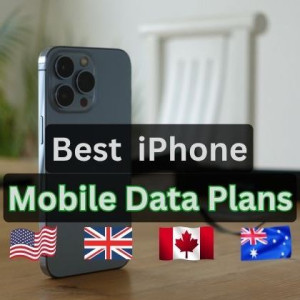
Best iPhone Mobile Data Plans in US, UK, Canada and Australia
246 Views

How to create a VTU Website in 3 Minutes
9939 Views
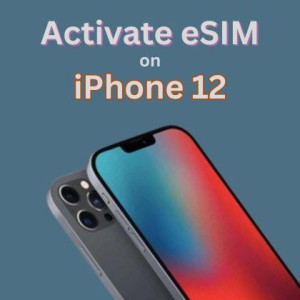
How to Activate eSIM on iPhone 12 Series in US, UK, Canada and Australia
200 Views

AK Data VTU – Buy Cheap MTN Data
1008 Views

Free VTU Creator Software - Free VTU Script
4361 Views

Vodafone International Roaming Charges, Plans, Countries, etc
2985 Views
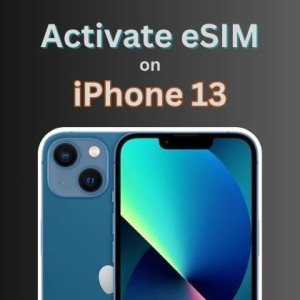
How to activate eSIM on iPhone 13 Mini, iPhone 13, iPhone 13 Pro and iPhone 13 Pro Max
222 Views

Best Free Website Designs for Your VTU Portal
7003 Views
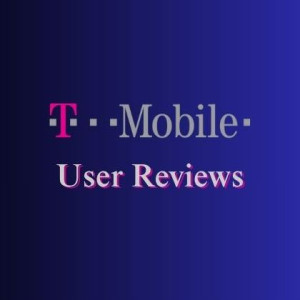
T-Mobile ISP Reddit Reviews: What Users Are Saying About T-Mobile's Internet Availability and Speed
243 Views

6 Cheap Data VTU Websites in Nigeria
8070 Views


